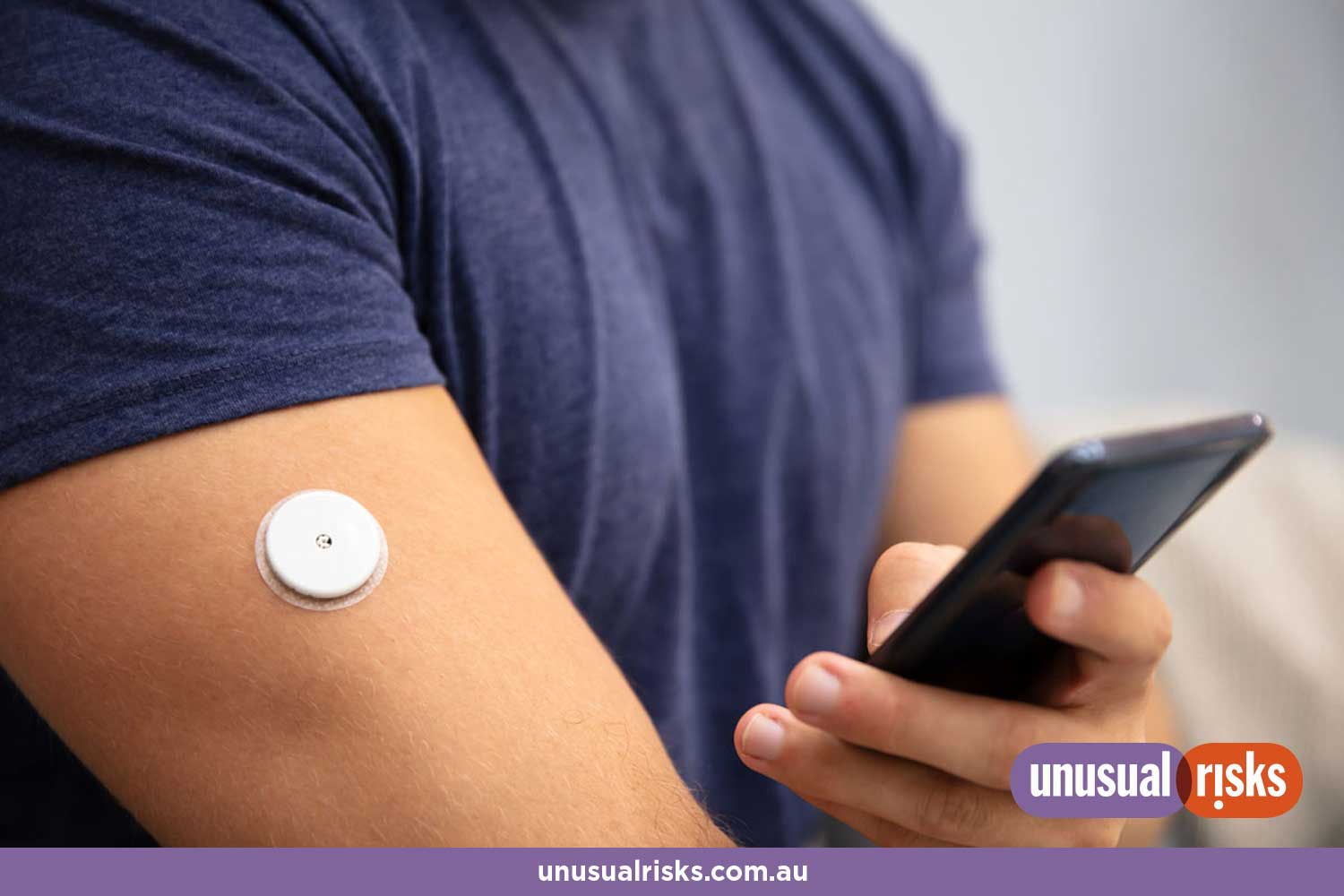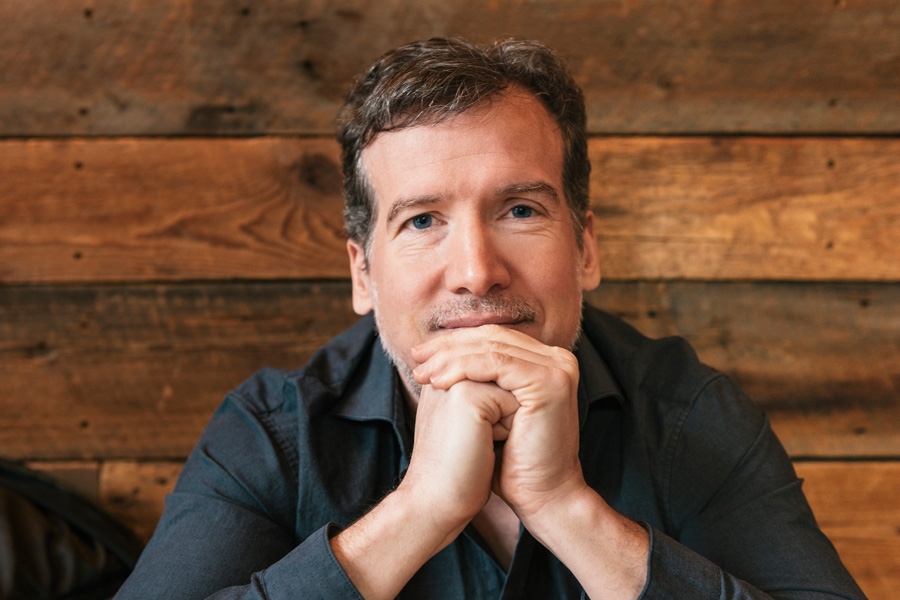life-insurance
-
Be careful what you Google when looking for advice on life insurance

Be careful what you Google for, when searching for simple answers to complex questions like; Can people with HIV or other complex health conditions can still qualify for life insurance?
Google Search is part of our modern-day lives.
Who hasn’t made a quick Search for the bio of an actor, the secret to a killer Bearnaise sauce or asked, ‘Is there a sequel to Game of Thrones?’
Search is also a growing part of our personal health management. People's tendencies for a late-night search session with Dr Google self-diagnosing potential medical conditions —by searching for symptoms —are known to trigger many an anxious night of misinformation and questionable comparisons.
The reality is many of our late-night search results usually add to our anxiety and uncertainty.
The new skill of knowing ‘when to consult a professional’ is becoming the new 21th Century survival skill to learn.
-
Can you still get life insurance with a history of recreational drug use?

Life is complicated.
Getting on with life is even more complicated; so it's important to talk about what matters most and know where we stand.
- In 2019, around 3.4 million Australians reported using an illicit (recreational) drug in the last 12 months.1
So how does having a history of personal drug use affect your ability to create a safety net for yourself and your family?
Here's what you need to know ahead of time when you're needing to get your life insurances sorted.
-
Celebrating Intersex Day of Remembrance

Intersex Remembrance Day
'Pink is for girls and blue is for boys. Girls are princesses and boys are pirates. Girls like only boys and boys don’t kiss other boys... — These are just a few restrictive ideas of gender and gender identity that have seen many queer people marginalised and scrutinised for centuries'.
(National Geographic Magazine - Jan 2017 issue)If there is anything we know, it's that life is not black and white - and not everyone is neatly defined by an Acronym LGBTI.
-
Do I need life insurance if I'm Single and LGBTQIA+?

Do I need life insurance if I'm Single and LGBTQIA+?
The answer is probably Yes, and here's why
Many LGBTQIA+ singles are taking control of their own lives and getting their Life Insurance sorted sooner than many of their straight allies, who traditionally risk leaving such important decisions until they’re married with children.
And that’s because LGBTQIA+ folk often face more unique challenges than our straight friends.
Many LGBTQIA+ people understand the importance of having their own Income Protection insurance in place because it helps protect their ability to continue to earn an income, to live, to love (and to party). However many LGBTQIA+ people have additional Life Insurance needs and challenges.
-
Does it still make sense to think about Life Insurances today?

Life still goes on, even in the middle of a Pandemic.
Yes, it makes perfect sense to think about life insurance today - especially today - because life still happens to us all, all the time, even during difficult times.
One of the dangers of living through difficult times (and the LGBTQIA+ Community is no stranger to surviving difficult times) is we can sometimes fixate on the biggest issue and ignore the most important issue - our life, love, and relationships continue regardless.
Our innate adaptability can lead many LGBTQIA+ couples to embrace wildly different financial goals, styles and circumstances in our partners.
-
Getting Life and Disability Insurance when you're living with Sleep Apnea

Getting Life insurance while living and working with with Sleep Apnea
Sleep Apnea is a condition where your breathing stops and starts while you sleep. In Australia, an estimated 5% of the population has sleep apnoea, translating into approximately 1 in 20 Australians being affected.
-
Getting Life Insurance when you're living with an MS diagnosis

Are you living with a hidden complex health condition?
It's time for a fresh look at living with a multiple sclerosis (MS) diagnosis and getting your life insurance sorted.
MS affects approximately 2,5 million people worldwide, but when you live with multiple sclerosis (MS), it may already feel tough to relate to people who don’t have the condition. As people with an often hidden condition, they face challenges because of their disability but if they're also identifying as LGBTQIA+ the 'double whammy' of feeling like a “minority within a minority” can feel like more discrimination.
-
How much life insurance cover do I need?

This question has always intrigued me because it sounds similar to the equally difficult-to-answer question, ‘how long is a piece of string?’
I suppose the answer is, ‘as long as it needs to be and as much as you need to have’.
But that's probably not going to move the answer along much, so here is a good place to start your thinking.
-
How to buy life insurance if you're LGBTQIA+

An interesting question we're often asked is,
'Who are the most uninsured people in the community?'
The answer might surprise (and sadden) you.Young male P plate drivers? Young Tradies? Army Reserve personnel? Single mothers? No.
The Australian LGBTQIA+ Community is one of the most underinsured and underserved markets with financial services.
This of course then leaves them and their families at greater vulnerability than their straight counterparts.
-
Life Insurance
If you're thinking about life insurances, chances are you have something worth protecting.
These days HIV or diabetes doesn't have to be a life sentence
But most insurance companies still treat you like it is.
People with pre-existing well‑managed complex health conditions have, up till now, been prevented from accessing quality Life Insurances and Income Protection cover, simply because of their conditions.
Explaining Life insurance cover
Life insurance (also called term life or death cover) is designed to protect against the financial impact of unexpected death and pay a specified amount of money to your beneficiaries, helping to make sure they’re looked after in the event should that occur.
- The benefit payout is either paid to the owner of the policy, your nominated beneficiaries, or your estate.
- High-quality life cover can also payout upon diagnosis of a terminal illness in the final 24 months.
Practically speaking - don't leave your debt to people you love
Case Study
Meet John and David: partnered and paying a large mortgage together.
David’s $1.5 million life insurance policy will ensure his partner John is cared for in the event of an unexpected death or terminal illness, and the amount of cover is sufficient to pay off the mortgage and provide funds to invest to help replace David's income too.
- After driving home from a work event, David is injured in a multi-vehicle car accident, suffering a heart attack and passed away.
- His life insurance payout meant his partner John could remain in the family home they’d renovated together, could pay off the remaining mortgage, could continue to live close to their established network of friends and family of choice in the community they had both contributed to and live the lifestyle they had designed together.
It allowed John to face an unexpected major life change with the backup of significant financial options.
Why you may need life cover
Life insurance becomes even more important if you have people who rely upon you financially or if you have debts that need to be paid out upon your unexpected death.Most people don't know that 30% of all life insurance payouts have been for terminal illness
Expenses to protect could include:
- How much would be needed to pay off all your debt upon your unexpected death?
- How much would your surviving partner (and any dependents) need to pay living expenses?
- How much do children need to complete education and how will this be funded?
- If you unexpectedly passed away, would you want your partner to need to downsize and move to a cheaper location?
- Would you want them to have the stability of being able to remain in a familiar environment and help any children complete their education with the advantage of having a parent at home to look after them?
- And what are the practical cost for end-of-life expenses and how will this be funded?
Real Life Statistics
- 30% of all life cover claims are for terminal illnesses.
- 43,477 deaths were attributed to cardiovascular disease in Australia in 2017 and kills one Australian every 12 minutes. Australian Institute of Health and Welfare – Injury, June 2017
This is not just about getting a Life Insurance policy, this is a human rights issue.
We believe that every Australian should have equal access to high-quality Life Insurance products, no matter what their sexuality, gender, race, age or beliefs. We believe this is not just about getting Life Insurance, this is a human rights issue.
Life Insurance can help you be certain your loved ones are provided for; your child's educational needs are taken care of and your chosen family won't have to worry about their future if you’re not there to continue to protect and provide for them.
When does life insurance payout?
Life insurance will normally payout upon the death of the life insured and can help their dependants cope financially after you die.
Many people don't know that high-quality life insurance can also pay out upon the diagnosis of a terminal illness in the remaining 24 months, as well making it a strong part of a backup plan.
A sad but all too-common experience
Often, when a couple establishes a life insurance policy to protect each other, one person has their application accepted, but the other is refused because of a pre-existing health condition.
Both are left feeling that a wedge has been driven between them and that their needs and choices were not understood, honoured or valued.
At Unusual Risks Insured our mission is to change this and be the change we want to see in the world.
How it works together with other insurance covers
This is how Life Insurance works alongside Disability Insurances
- Life Insurance can also payout upon a Terminal Illness in the last 24 months.
- Approximately 30% of all life insurance payouts are for terminal illnesses.
- This is referred to as a payment in advance and can be a significant financial help during the most difficult of times.
- Crisis Recovery insurance is designed to pay an immediate lump sum to help offset unexpected medical expenses and help you maintain your financial liquidity in the event of an unforeseen (and usually expensive) medical crisis specified in the policy. This can help stabilise debt obligations and boost your personal cash flow at a time when you are focused on recovery.
- Income Protectioninsurance is designed to protect up to 70% of your income after a waiting period of your choice, while you cannot work due to sickness or injury.
- Total & Permanent Disabilityinsurance is designed to protect against long-term disability and pay a lump sum after a 6-month wait if you become permanently disabled, as defined in the policy and you can no longer work in your current occupation.
Life insurance can provide a safety net for you today against terminal illness and provide for your family tomorrow.
Questions people ask about...
General Questions people ask about Life Insurance
Take a look at some quick questions people ask about Life Insurance.
What is it?The basic premise is simple:
- Life insurance gives you peace of mind while you're alive, and financial support for your loved ones when you're gone.
Life insurance can make a huge difference for you, your partner and your family, not just financially but emotionally too.
What's the chance of needing it?- There is a 1 in 10 chance of needing to claim for Life insurance or Terminal Illness.
Setting up a life insurance policy sooner, rather than later, will give you immediate security, more options and flexibility you'll need in the future.
Do I need Life Insurance?
Most probably, Yes.
It's something you should have if there are people in your life depending on you for everyday living expenses, renting a home or paying a mortgage and other major debts, protecting a family and even funding education costs or helping aging parents heading for retirement.
If you expect to have someone in the future who will be depending upon you, you might like to get things sorted now while you have confidence you can qualify for a life insurance policy.
How much does it cost?
The cost of Life Insurance is based on a range of factors: your age, gender, smoking (and vaping) status, current health, lifestyle, and general occupation.
Many people take a 'best to budget approach' and set a budget for insurance premiums.
How does it work?
If you were to unexpectedly pass away or become terminally ill, the policy is designed to payout to the nominated beneficiary or the estate of the life insured.
You can change your life insurance beneficiary nomination as often as you need.
How do you pay for it?
Life insurance premiums can be paid monthly or half-yearly and yearly by direct debit.
You may even be able to have the premiums paid from an existing super fund or SMSF as an automatic partial rollover, in certain circumstances.
How much life insurance cover do I need?
It depends on where you are in your life, what your big plans are and who depends on you financially.
If your single and self-reliant, you're probably interested in Income Protection for you now and Life Insurance for your future partner.
When you're in a relationship or have a family, you probably want to have enough to replace your income so your partner or spouse and children have the support they need.
- Use the Governments Money Smart Insurance Needs Calculator to find out how much life insurance you may need or we can help you talk through your options and prioritise your needs.
- You might also enjoy watching our fun explainer video called How Much is Enough? to help start your thinking about this difficult question.
Can they cancel the policy on me if I get sick?
No. A Guaranteed Renewable policy is an insurance policy feature that obligates the insurer to continue coverage as long as premiums are paid on the policy, regardless of changes in the policy owners health or occupation.
Can I upgrade the policy as I need later?
Yes. You can always apply to upgrade an existing policy to a higher level of cover.
You will probably need to make a fresh application and health assessment when seeking to increase your level of cover, so consider taking out a higher level of cover now with certainty, rather than running the risk later of not being able to increase your policy due to any unforeseen significant change in your occupation or your health.
Do I have to update them about changes in my health?
No. There is no requirement for you to update a life insurance company about any changes in your future health.
Once a Life Insurance policy is in force, any future changes in your health (or even your occupation), will not affect your cover while the policy remains paid up and in force.
Where to Now?
Continue your journey…
- Make sure you Browse through our Blog
- Have questions? See our Frequently Asked Questions
- Discover someone with a similar situation in our list of Case Studies
- When you're ready to know if we can work with you, take our Anonymous Pre-assessment
- Send us an Email or Jump the queue and Call for a Chat
-
Six Power Money Decisions for Same-sex Couples

If you’re part of a gay couple, here’s 6 power money decisions that help LGBTQIA+ couples get on the same page financially, and stay on track together.
Because who wants to spend a lifetime arguing about money, right?
-
Straight and living with HIV?

Straight and living with HIV? It's becoming more common than you'd think
The typical straight guy (or girl) next door who is just living with a chronic health condition called HIV, is increasing
HIV is not a top-of-mind conversation starter for most straight guys and girls so many straight people believe HIV is not a health issue for the straight community, but they would be very mistaken.
- In Western Australia during 2020, more straight men were diagnosed with HIV than gay men.
- Despite new HIV numbers declining nationally for more than a decade, the number of straight men contracting the sexually transmitted HIV virus is on the rise.
-
The problem of Becoming Uninsurable - it happens before you know it

Life Insurances are important financial tools that help us manage the ups and downs of life, love and business. It's an easy way to safeguard our unpredictable futures, just in case.
But delaying important decisions and continually 'waiting for a convenient time' to get these important parts of life in place - is a risk as we all over time can become uninsurable for a variety of reasons.
But some health conditions can be unexpected, unpredictable and then uninsurable - and that can create a significant equally unexpected problem for many people.
-
Valentine's Day and Love Insurance

Valentine’s Day means different things to different people
But ultimately it's about Love — and Love Takes Action
What some people miss is that life insurance is really love insurance — by having sufficient life insurance, they're safeguarding the future of the ones they love. Drew Browne
Four thoughtful ways you can act on your love today
-
What has sexuality got to do with a life insurance application?

What has sexuality got to do with a Life Insurance application?
The simple answer is — Not much.
The honest answer is — A lot more than you'd think
- Life Insurance companies traditionally haven't designed their products and services with LGBTQIA+ people in mind and tend not to consider the needs of diverse communities.
Research shows when service providers assume their clients are heterosexual and use heterosexist language, this can result in discomfort, alienation, and even ongoing discrimination against a significant part of the broader Australian community, their families, and friends.
-
Why you should buy life insurance for your Co Parent or Ex Partner

Co Parents need life insurance and this is why
While you might not be together romantically, raising children together leaves Co Parents financially connected in many ways — whether you want to acknowledge that or not.
Remind me again what is Co Parenting?
The term Co Parenting was traditionally only used to describe a situation where a parent had split from their previous partner following a separation or divorce, but who were still actively involved in the lives of their shared children.
Single
Single Age is no indicator of relationship status or financial responsibility. You can be young and starting out or older and established; and both enjoying living the single life. You might be single, single again, sometimes single, single with kids, single with pets or perhaps something a little more complicated. When it comes to...
Click to Read MorePartnered
Partnered Sharing life and love with someone can be twice as exciting. You might be partnered, partnered with pets, officially de facto, officially married (yay!), splitting expenses but sharing life, or joining incomes and combining financial lives too. You might be together but living apart, working towards a future with kids, thinking...
Click to Read MoreParenting
Parenting For today's LGBTQIA+ families, there are no accidental families. You might be parenting and single with kids, parenting solo with kids, parenting and partnered with kids, (yours, theirs and ours), dual parents with kids, co-parents, foster parents, adoptive parents, or even adoptive parents of kids with additional needs (just...
Click to Read More













































































